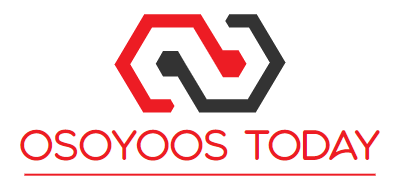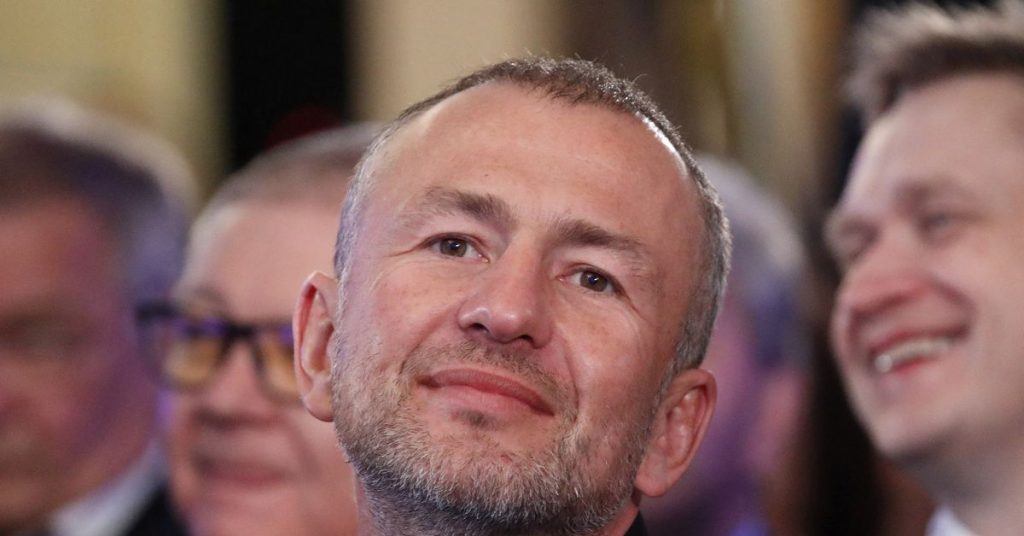ISTANBUL/BRUSSELS (Reuters) – Russian businessman Andrei Melnichenko ceded ownership of two of the world’s largest coal and fertilizer companies to his wife the day before he was sanctioned by the European Union, according to three people familiar with the matter.
Melnichenko, who made his fortune in the years after the fall of the Soviet Union in 1991, gave up his stake in coal producer SUEK AO and fertilizer group EuroChem Group AG on March 8, on his 50th birthday, leaving his wife, Alexandra Melnichenko, beneficial corporate ownership, the people said.
As of March 8, Melnichenko owned the two companies through a chain of funds and companies stretching from Moscow and the Swiss town of Zug to Cyprus and Bermuda, according to legal files reviewed by Reuters.
Register now to get free unlimited access to Reuters.com
Since 2006, Melnichenko’s wife has been second only to her husband in the list of beneficial owners of the two companies in trust documents, according to the three people, who spoke on condition of anonymity because they are not allowed to speak publicly about the spouses. origins. People said that meant she would inherit corporate ownership in the event of her husband’s death.
However, when the war in Ukraine began in February, Melnichenko became increasingly concerned that he would be included under the European Union’s sanctions regime against Russia, people familiar with the matter said. On March 8, Melnichenko notified the trustees of his retirement as a beneficiary, People said. This led to the same series of changes in the credit records that would have occurred if the businessman had died, making his wife the beneficiary.
Reuters was unable to reach Melnichenko and his wife for comment.
A spokesman for Russia-based SUEK did not respond to messages seeking comment. Switzerland-based EuroChem has confirmed that Alexandra Melnichenko has replaced her husband as beneficial owner.
“After the departure of its founder, the initial usufruct ownership of a fund that owns 90 percent of the international fertilizer company automatically passed to his wife,” the company said in a statement to Reuters on Wednesday.
The role of Melnichenko’s wife in EuroChem was first reported by the Swiss newspaper Tages-Anzeiger. Her role in SUEK as well as the timing of ownership changes and other details are reported here for the first time.
Melnichenko, who founded SUEK and EuroChem two decades ago, was ranked the eighth richest man in Russia last year by Forbes magazine, with an estimated fortune of $18 billion.
The European Union imposed sanctions on Melnichenko, citing his alleged proximity to the Kremlin, on March 9 as part of a Western attempt to punish Russian President Vladimir Putin for the February 24 invasion of Ukraine. The penalties – which include freezing his assets, preventing him from entering the EU, and preventing EU entities from providing him money – do not apply to his wife, nor the couple’s daughter and son.
Britain also placed Melnichenko, a Russian born in Belarus and a Ukrainian mother, on its sanctions list on March 15. Switzerland imposed sanctions against him the next day.
In a statement to Reuters in March after the imposition of European Union sanctions, the businessman said the war in Ukraine was “really tragic” and called for peace. A Melnichenko spokesman said at the time that he had “no political affiliations.”
Western governments have imposed sweeping sanctions on Russian companies and individuals in an attempt to force Moscow to withdraw.
But some sanctioned Russian businessmen, including Roman Abramovich and Vladimir Yevtushnikov, transferred their assets to friends and family members, raising doubts about the effectiveness of these attempts to pressure Moscow.
Melnichenko, whose residence in the Swiss resort of St. Moritz was registered until he faced the penalties, was instructed to change ownership of his businesses from a retreat near Mount Kilimanjaro where he was celebrating his birthday, according to one of the people. familiar with the matter. A Boeing 737 adorned with the billionaire’s signature “A” on the fuselage touched down in Tanzania on March 5, from Dubai, according to flight-tracking service Flightradar24.
Melnichenko’s lawyer did not respond to questions about the Kilimanjaro trip.
Melnichenko’s transfer of ownership in SUEK and EuroChem had far-reaching effects.
After several weeks of reviews, the Swiss financial authorities concluded that the two companies could continue to operate normally on the basis that Melnichenko was no longer involved with them. SUEK and EuroChem said British and German financial regulators had reached similar conclusions.
British and German regulators did not respond to requests for comment.
Upon completion of the reviews in late April, SUEK and EuroChem — which last year had revenues of $9.7 billion and $10.2 billion, respectively — were able to resume distributing millions of dollars in interest payments to bondholders.
In recent weeks, SUEK and EuroChem have also contacted Western clients, offering them documents for the new ownership structure in a bid to reassure them they can continue to do business with Mr Melnichenko’s former companies, two people familiar with the matter said.
No more payments
In Switzerland, the Secretariat for Economic Affairs (SECO) said that no sanctions have been imposed on SUEK or EuroChem in the country.
SECO said, to the best of its knowledge, Melnichenko is no longer a beneficiary of the trust that EuroChem belonged to at the time of his sanction by the European Union and Switzerland.
SECO also said it sought confirmation from Eurochem that it would not provide funds to Melnichenko.
“The company and its management have ensured in writing to SECO that the Swiss sanctions measures will be fully complied with, in particular that no money or economic resources will be made available to the sanctioned persons,” SECO said in response to an inquiry.
The Swiss authorities defended their decision not to extend the sanctions to Melnichenko’s wife or his ex-companies, citing the fact that the EU authorities also did not sign them with sanctions.
“In this case we did exactly what the European Union did,” Swiss Economy Minister Guy Parmelin told Swiss television on Wednesday.
Parmelin added that Switzerland was also concerned that imposing sanctions on EuroChem at a time when fertilizer prices have risen in most parts of the world could have dire consequences for agricultural markets. EuroChem said it produced more than 19 million metric tons of fertilizer last year – equivalent to roughly 10% of global production, according to United Nations data.
The European Commission, the EU’s executive arm, said it had no information on the transfer of Melnichenko’s assets to his wife. The commission said it was ready to fill in the loopholes that allow individuals and companies to evade its sanctions. Earlier this week, it unveiled proposals aimed at outlawing moves to bypass sanctions, including by transferring assets to family members, across the 27-nation conglomerate.
Under the trust structure, independent trustees exercise control over SUEK and EuroChem while ownership of the usufruct, which was in Melnichenko’s hands until March 8, passed to his wife.
A mathematician who once dreamed of becoming a physicist, Melnichenko left university to plunge into the chaotic – and sometimes deadly – world of business in the post-Soviet era.
He founded MDM Bank but in the 1990s it was still too young to engage in the privatizations under President Boris Yeltsin that handed over selected assets to a former superpower to a group of businessmen who became known as an oligarchy due to their political and economic influence.
Melnichenko then began buying up often distressed coal and fertilizer assets, which made him one of the richest men in Europe.
The European Union, when it announced its sanctions, said Melnichenko “belongs to the most influential circle of Russian businessmen with close ties to the Russian government.”
The European Union said in its March 9 sanctions order that Melnichenko was among dozens of business leaders who met with Putin on the day Russia invaded Ukraine to discuss the impact of the sanctions, demonstrating his close ties to the Kremlin.
At the time, a spokesman for Melnichenko denied that the businessman belonged to Putin’s inner circle, and said that he would oppose the sanctions in court. On May 17, Melnichenko challenged the sanctions by filing an appeal with the General Court of the European Union, which deals with complaints against European institutions, according to court records.
Russia describes its actions in Ukraine as a “special operation” to disarm Ukraine and protect it from fascists. Ukraine and the West say fascist allegations are baseless and the war is an unjustified act of aggression.
Italy confiscated Melnichenko’s yacht – the 470-foot-tall, €530 million sailing yacht A – on March 12, three days after it was placed on the EU’s sanctions list.
Soyek and Eurochem said on March 10, the day after the European Union announced sanctions against Melnichenko and 159 other individuals linked to Russia, that their founder had resigned from his positions on its corporate board.
Register now to get free unlimited access to Reuters.com
(Reporting by David Gautier-Villars and Gabriela Bachinska); Additional reporting by Chris Kirkham in Los Angeles, Andrew McCaskill in London, Michael Shields and Brianna Hughes Nigawe in Zurich; Editing by Daniel Flynn
Our criteria: Thomson Reuters Trust Principles.

“Writer. Evil travel maven. Avid creator. Proud beer expert. Music lover. Explorer.”











More Stories
Jake Sullivan meets Yang Jiechi in Luxembourg, paving the way for a possible meeting between Biden and Xi
The CDC adds 3 places to its “high” risk list, including Mexico and the United Arab Emirates
Wordle 359 June 13 – Struggling with Wordle today? THREE CLUES TO HELP ANSWER | Games | entertainment